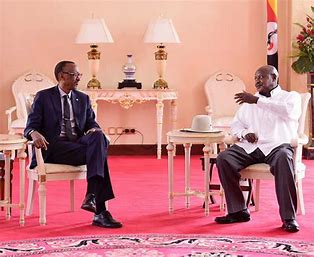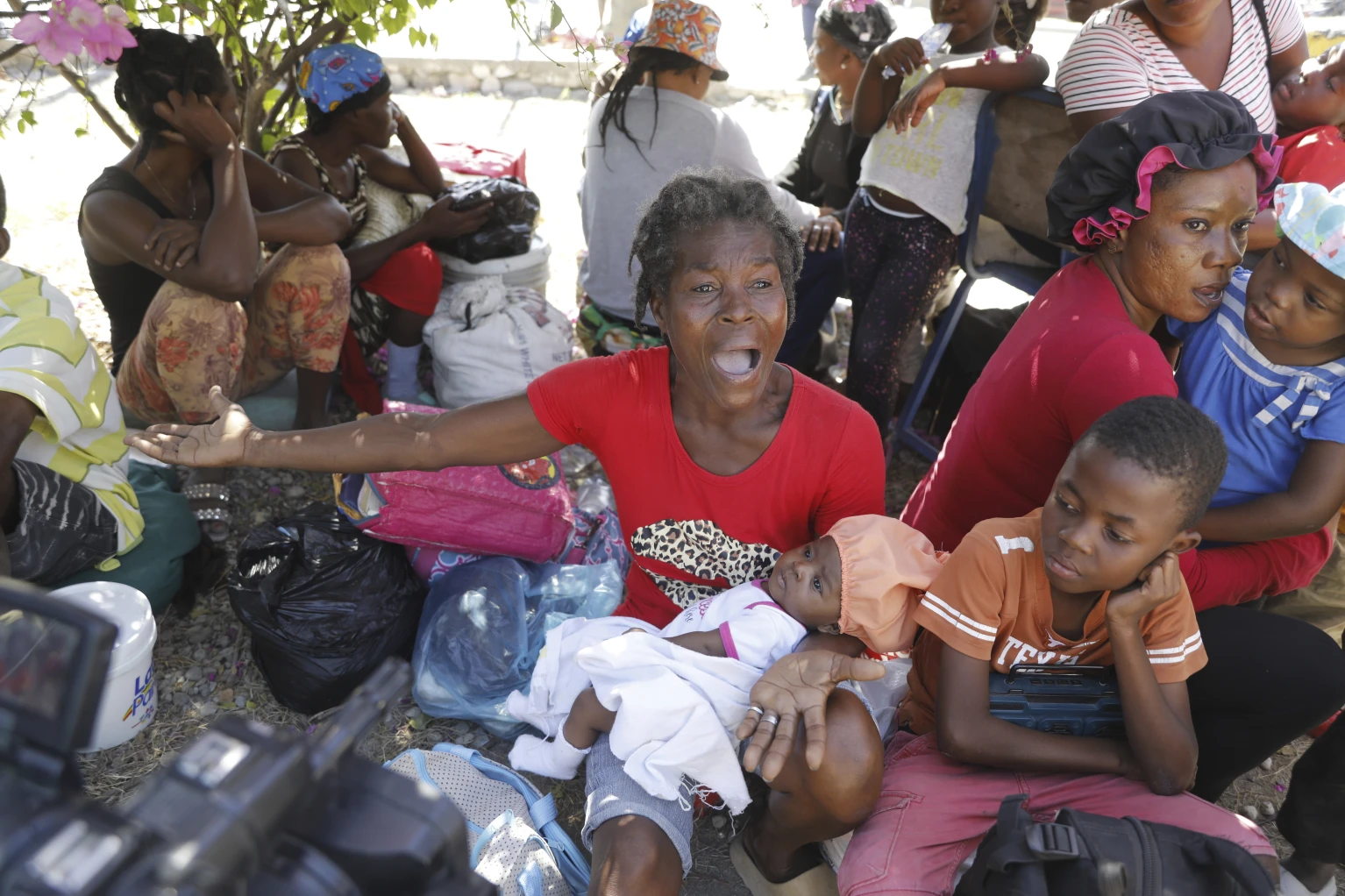
Education is the true password to the development, transformation and progress of a country. It should, therefore, be handled with the greatest intelligence by any serious government. However, in Uganda the political managers of the country preach development, transformation and progress but are not so bothered about quality of education.
At the beginning of the second millennium, they made Uganda the first country in Africa to blindly, unquestioningly and without critical thinking embrace globalisation as the way forward to development in the 2024. In fact shortly after, together with their counterparts in South Africa, influenced the African Union to also embrace globalisation as the pathway to development in Africa.
A consequence of globalisation in Uganda in particular and Africa in general has been the massification, marketisation and privatisation of education at all levels of education. These money-culture oriented strategies in education management have greatly compromised the quality of education. In fact the political managers in Uganda are committed to liberalisation of education whereby government has left education completely to market forces.
Apparently, the education actors that have gained from full-blown liberalisation are the politicians at the ministry of education. They own schools and perhaps universities. There are fears that some of the public funds that would otherwise be used to improve education in the public schools and universities are being siphoned off and invested in private schools and universities, which is sabotaging or undermining of the public education system.
Patriotic people would say sabotaging or undermining the public education system by people entrusted to manage it politically is high treason.
As if that is not enough some services provided to the public education system are provided by the political managers of education or those connected to them. There is more or less no serious commitment to enhancing the quality of education upwards. Instead, what is happening in the public schools, as in the private schools most of which are owned by politicians or members of their families, fees have uncontrollably skyrocketed to the point of squeezing the children of the poor out of both private and public schools and public universities.
Many school goers and university students are dropping out of the education system because it is only being managed for the rich. This of course politico-arrogance and politico-stupidity of present-day humanity in political leadership at the centre of Uganda’s education system for selfish gains in an increasingly impoverished country
One thing is true. Both thinking and reason seem not to matter anymore in Uganda’s education sector. There is perhaps also deadening conspiracy of silence among the technocrats in the ministry of education. One would not be far-fetched to suggest that all that matters among the technical and political managers of our education system.
I am told many of them run fleets of hostels for school children or university students. They are, I am told, joined by big women and men in the military and politics. The Parliament of Uganda, which makes laws, has been making other laws to enhance the oppression and expression of Ugandans but not to decongest our education system of politicians and technical people who are running the quality of our education to the abyss. May be this is because the political managers of education in cabinet have vested interest in what is happening to our education system to the personal benefit or to the benefit of those connected to them.
The British colonialists may have been rascals but when it came to education, they emphasised quality. They never allowed politicians and technocrats in education to be money-makers by means other than the emoluments the colonial government gave them. They knew money culture, which they introduced in Uganda was a deadly pollutant of brains, which could make even the most intelligent people more stupid than the basically stupid. Too much love of money, the colonialists knew, was not a good bedfellow with quality of education. Indeed, while they imposed themselves on us politically, education in Uganda was the best in Africa and compared very well with education in Britain. Indeed, until about 1970 primary, secondary and Makerere University College examinations were set by Cambridge University. That was the way they wanted colonial education to remain of very high quality.
One could say was an aspect of colonialism, but our best brains then, and some of which are still alive, were a product of the colonial education system. They excel when you compare them with the products of the education system managed by political merchants and whose interest is not ultimately to use brains to fuel development, transformation and progress but to have an excess of graduates at all levels of education that can be easily hired and fired and, therefore, fit to be slaves in the 21st century.
Interestingly, but not surprising, private schools are now performing much better than public schools during these Musevenite times. Can you imagine the schools of the state minister for Higher Education, Muyingo, performing much better than the traditional public schools you and me were educated in: Kings College, Budo, Busoga College, Mwiri, Nabingo, Namagunga, Gayaza, Ntare, Nabumali, Namilyango, et cetera:
All this is a result of the tendency of our 21st century rulers to weave uniform thinking, reduce pluralistic thinking, silence alternative thinking, crush pluralistic political association, discourage critical thinking and reasoning, and reduce Uganda to a non-debating society where all ideas should flow and be controlled and regulated only by the president of Uganda.
Meanwhile our universities continue to produce graduates that are either outward-looking, cannot meaningfully and effectively influence development, and appear as if they are instructed in the art and science of conspiracy of silence at all levels of education.
Is it true that all is lost?
No. All sanity is not lost. We still have thinking and reasoning capital in the country. What is debilitating us is the deep sea of the conspiracy of silence. We can learn from our small neighbour, Rwanda, to create a new trajectory for our education if what I have just stated is not the purpose of Uganda’s current education system.
Rwanda was also affected by globalisation, with all its “vices” of privatisation, massification and marketisation of education. However, patriotism, which is not officially taught like we do in Uganda, pushed the Rwandese government to rethink what the education system was producing. It rethought the products from the private education institutions and the entire education system.
The government’s rethinking of the role of private education institutions in the development, transformation and progress of the country in the 21st century – a century of new and different knowledge production, information, communication, integration and reintegration and requiring high quality education to produce critical thinkers and future-ready professionals, has made it to focus renewed effort on rebuilding quality in the country’s public education system and school. If the trend goes on, Rwanda, which used to resource school teachers and lecturers from Uganda in the early 1990s, soon after genocide, will in future be the one to supply Uganda with critical thinkers and future-ready professionals, as ours continue to produce disciplinarily as if new knowledge production does not matter have become unemployable and secondarily illiterate.
In Rwanda now learners are flocking to the greatly improved public schools, in terms of quality, while in Uganda the other way round is the case. Yet fees have become astronomical in both public and private schools in Uganda. Since private schools’ owners are either those who are managing Uganda’s education system or running such schools, it is not surprising that they have vested interest in running down our public education system
Apparently in Rwanda, private schools’ owners asked government to sponsor students in their private schools at public school fees rates, but government flatly rejected the idea. Government’s refusal to revamp the exploitative private school buy sponsoring students in them has meant that the spiral of collapse continues unabated. Clearly, the government has decided private schools are no longer needed in Rwanda’s education system.
The government has a 12-year education policy to upgrade its public schools. Uganda is pushing as if nothing is wrong instead government is stuck to poorly funded Universal Primary Education (UPE), Universal Secondary Education (USE) and the massification, marketisation, privatisation, education as well as stratification of education. Stratification of education means educating this generation according to class, family, wealth, etc. This is why Uganda’s education has been characterised as apartheid-like. The much-hyped Seed Schools are mainly for the children of the poor because they are USE schools, which government grossly underfunds, while there are some schools privately owned that government spend a lot of public money to maintain and/or educate certain categories of nursery, primary, secondary and A-level learners and pay teachers much better than those in public schools.
Besides, because of even public schools of Uganda hyping fees, and squeezing children of the poor and needy out of them, it is children of the rich with suspect high grades that are flocking to them as very academically sound children of the poor are being forced to go to the so-called SEED schools where government spends meaningless sums to fund their education. Clearly Uganda’s education is producing slaves and masters; nothing less.
My article reflects the knowledge, wisdom, understanding, insights and educational experience of someone who was in education processes in three countries – Kenya, Uganda and Tanzania – for 50 years. That someone is myself. Therefore, if some of what I have recorded here is painful, it is because there is a lot of pain in. My thoughts here are for Uganda today and tomorrow, whereby complex challenges, problems and issues require properly prepared graduates at all levels of the education system to confront them and provide appropriate solutions. Simplistic solutions were for the past century.
Yes, we can learn from Rwanda to enhance quality of education and begin to produce the graduates we need for the complex 21st century and beyond.
Some educational activism is needed in the communities that produce learners and at all levels of the education system to right our education system for quality.
For God and My Country
- A Tell report / By Prof Oweyegha-Afunaduula, a former professor in the Department of Environmental Sciences of the Makerere University, Uganda











